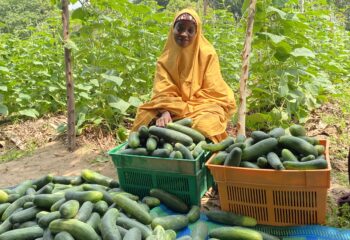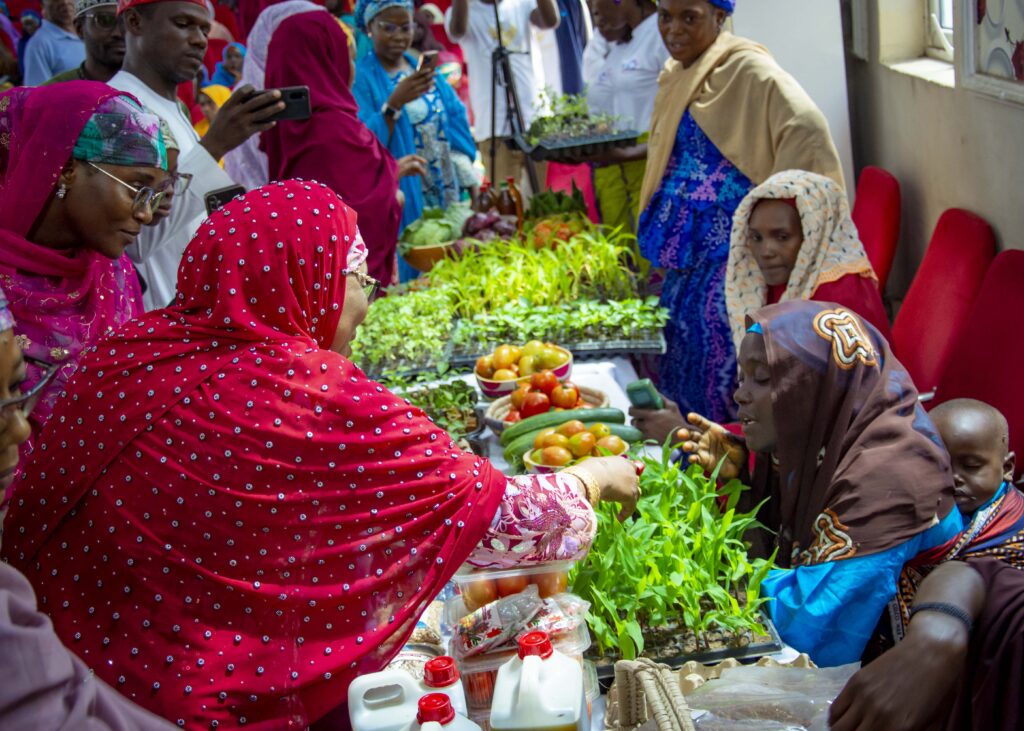
On September 18, the Kano State Government House came alive with energy and optimism as women farmers from across Kano and Kaduna States gathered for Mata Adon Gona — an inspiring women’s empowerment showcase celebrating innovation, resilience, and transformation in Nigeria’s horticulture sector.
Organized by HortiNigeria, in collaboration with the Presidential Committee on Economic and Financial Inclusion (PreCEFI) and the Kano State Ministry of Women Affairs, Children, and and People with Special Needs, the event spotlighted women as powerful agents of change, driving agricultural progress, strengthening food systems, and advancing inclusive economic growth across northern Nigeria.
“Women are the backbone of our agricultural system. When we empower them, we empower entire communities.”
Hajiya Amina Sani Abdullahi, Kano State Commissioner for Women Affairs, Children, and People with Special Needs
Women Redefining Agriculture
Since its inception, HortiNigeria has supported more than 20,000 women across Kano and Kaduna States through training in modern horticultural practices, post-harvest management, and business development.
Improving access to finance, technology, and markets has reduced post-harvest losses, increased productivity, and enhanced household resilience. These initiatives enable women to move from small-scale subsistence farming to sustainable agribusiness enterprises.
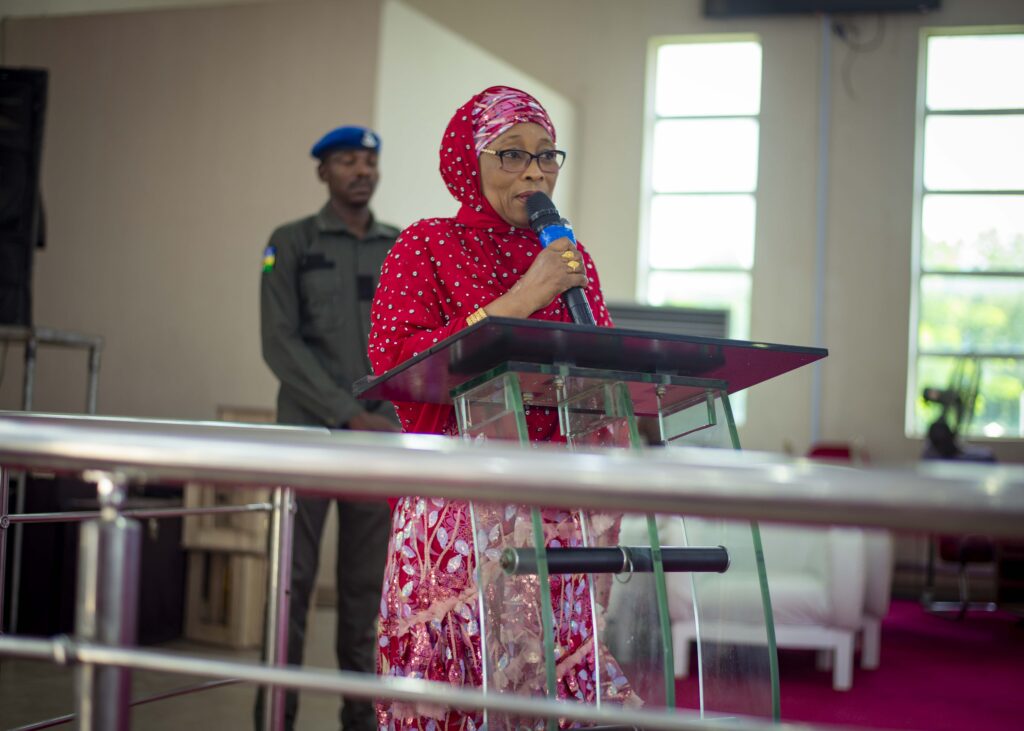
Some of the innovations these women have used were showcased during the event through exhibitions of freshly harvested vegetables and demonstrations of value-added products such as neem oil, seedlings, and organic fertilizers. Each display told a story of innovation, determination, and the women’s growing influence in the horticulture value chain.
In her address, Hajiya Amina Sani Abdullahi, Kano State Commissioner for Women Affairs, Children, and People with Special Needs, reaffirmed the indispensable role women play in agriculture. She emphasized that despite their substantial contributions, many still face barriers including limited access to land, finance, and modern technology. The Commissioner commended HortiNigeria’s ongoing efforts to dismantle these barriers and align with the state’s vision for inclusive women’s empowerment.
“Women are the backbone of our agricultural system,” she said. “When we empower them, we empower entire communities.”
Building Pathways Through Inclusion and Technology
The event also reinforced the critical connection between grassroots innovation and national priorities. It echoed Nigeria’s ambition to achieve 95% financial inclusion and bridge the 9% gender gap in access to financial services.
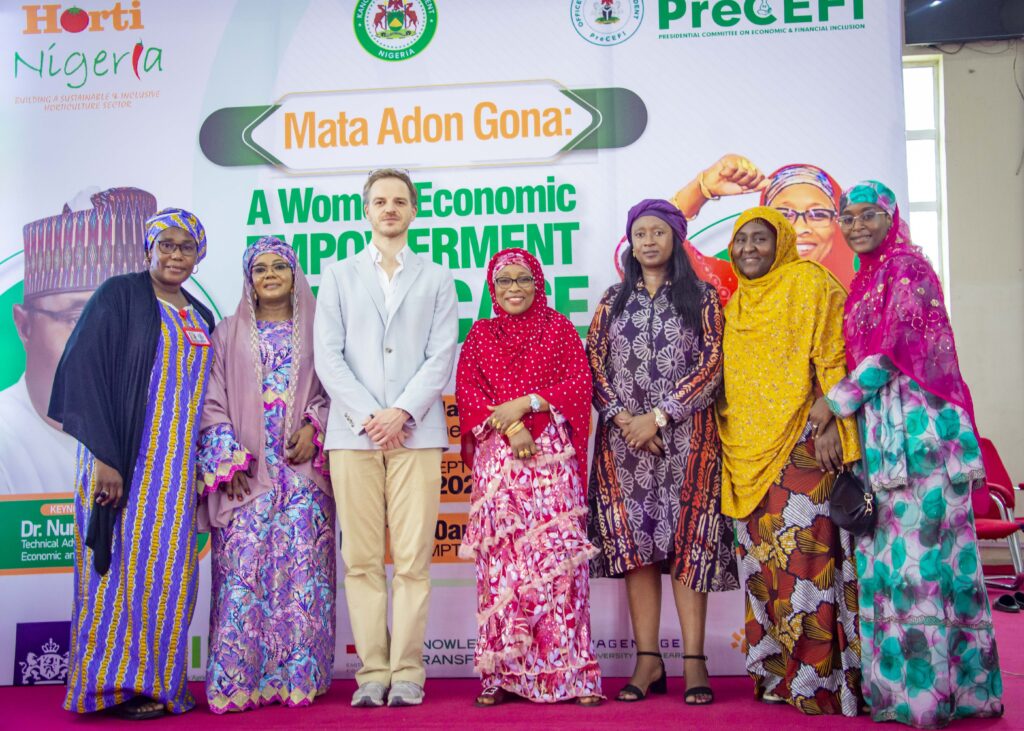
Delivering the keynote address, Dr. Nurudeen Zauro, Technical Advisor and Executive Secretary on Economic and Financial Inclusion to the President of the Federal Republic of Nigeria — represented by Dr. Amina A. Adamu, PhD, CIFE (PreCEFI) — highlighted how digital financial tools are revolutionizing opportunities for rural women.
He explained that with digital wallets, mobile banking, and inclusive insurance, women farmers can now expand their businesses, mitigate risks, and secure long-term financial resilience.
“HortiNigeria’s interventions,” he noted, “complement the national financial inclusion agenda by ensuring that women are not just beneficiaries, but active drivers of economic transformation.”
Collaboration for Sustainable Impact
A high-level panel discussion titled “From Inclusion to Transformation: Horticulture Market System Development Led by Women through a Multi-Stakeholder Approach” deepened the dialogue on women-led transformation. Moderated by Zainab Lawal Gwadabe, CEO of The SeedProject Co. Ltd., the session brought together leaders from government agencies, the private sector, and civil society to explore how digital infrastructure, market linkages, and equitable access to land can accelerate women’s participation in Nigeria’s agricultural economy.
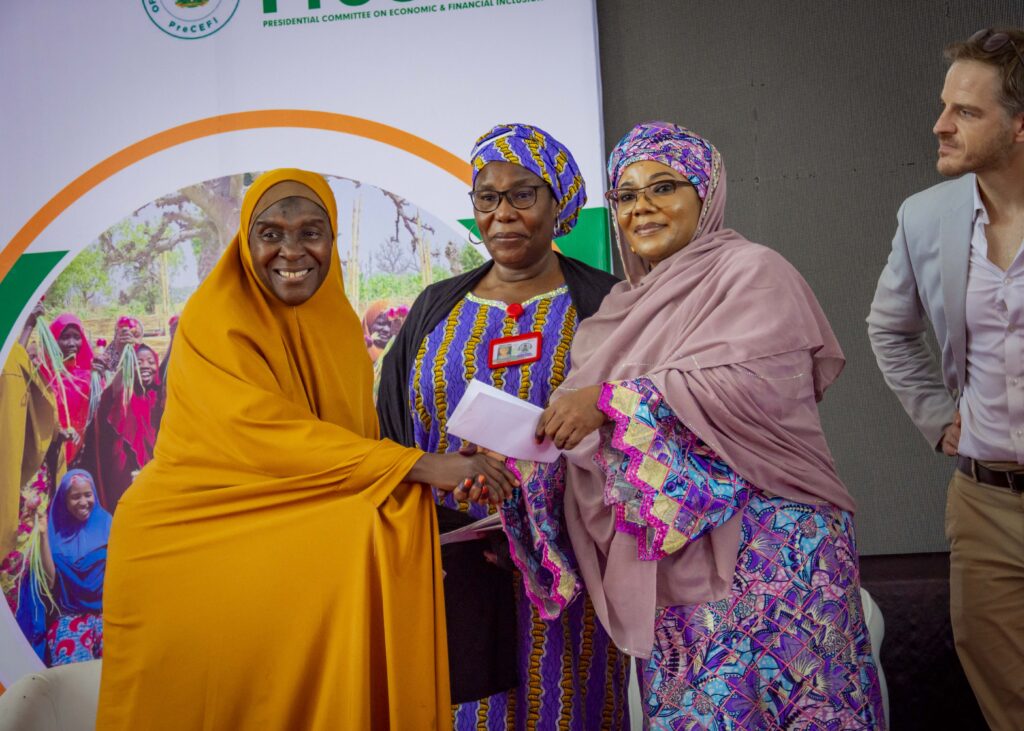
To recognize the commitment of women, Adaora Akojuru, CEO of Beta Agric Ventures, shared insights on “The Journey to Equity for Female Farmers in Minjibir LGA, Kano State.” Together with Gwadabe, Dr. Adamu, and Halliru Haruna, she awarded consolation prizes to outstanding participants — a symbolic gesture recognizing women’s resilience and inspiring continued advancement in the sector.
Lasting Impact
Reflecting on the broader outcomes of HortiNigeria’s interventions, Olubukola Funsho-Sanni, IFDC Youth and Gender Specialist for the program, emphasized that success is measured not just by numbers, but by the transformation of lives and livelihoods.
“We’ve seen women take charge of their businesses, improve their decision-making power, and build stronger community networks,” she said. “These are the real indicators of empowerment.”
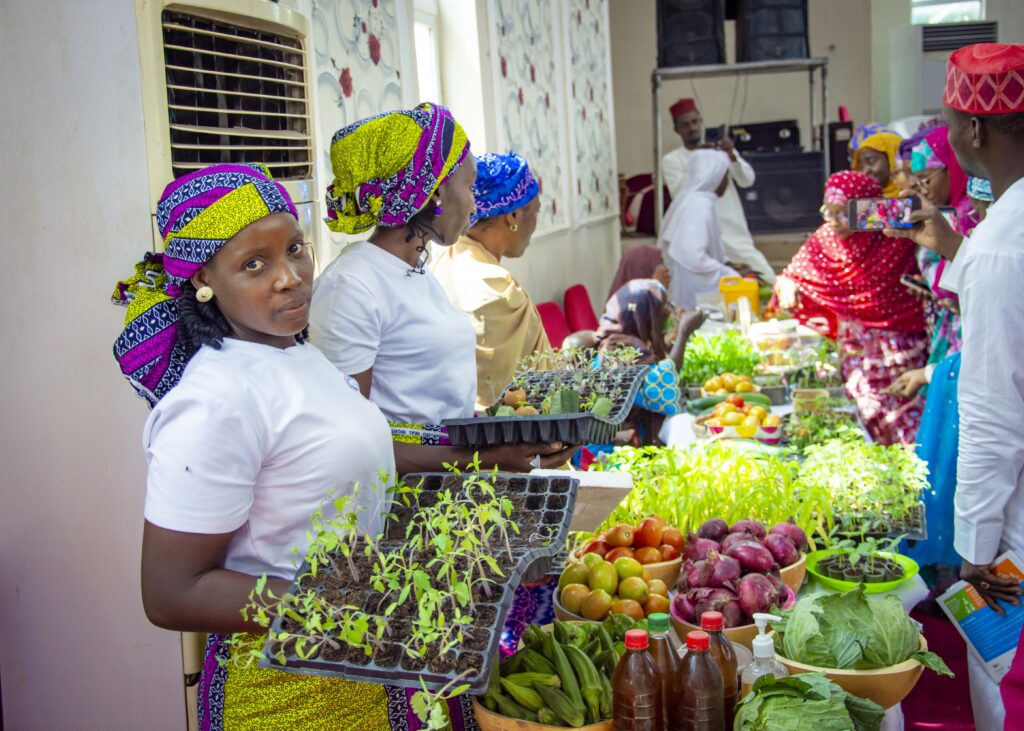
Thomas Tichar, HortiNigeria Youth and Gender Advisor at Wageningen University & Research, echoed this sentiment, noting that the initiative has fostered new mindsets and strengthened collaboration among women farmers. This collective spirit, he added, will be vital for sustaining growth and resilience long after the project ends.
Mata Adon Gona thus stands as an example of how women’s active participation in horticulture can strengthen food systems, stimulate local economies, and drive inclusive national development.
The event concluded with a resounding call to action: to continue investing in women as “the beauty and strength of the farm.” Their growing influence is not only reshaping agriculture but also paving the way for a more inclusive and prosperous future for Nigeria.
HortiNigeria (2021-2025) is funded by the Embassy of the Kingdom of the Netherlands in Nigeria and implemented by IFDC, together with KIT Institute and East-West Seed Knowledge Transfer Foundation (EWS-KT). The program promotes sustainable, inclusive, and profitable horticulture value chains that empower farmers — especially women and youth — to thrive in a modern, resilient agricultural economy.




